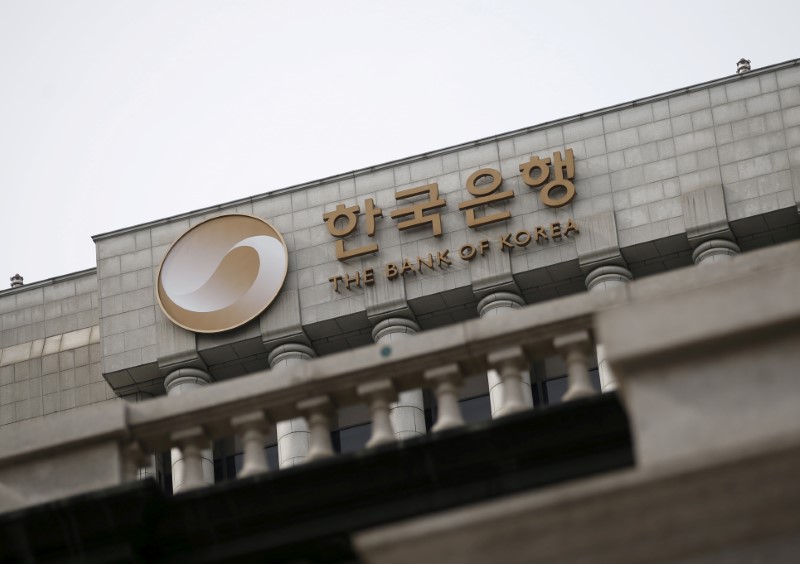By Cynthia Kim and Christine Kim
SEOUL (Reuters) - South Korea's central bank held interest rates steady on Thursday, as expected, with inflation running more slowly than forecast and exports showing a modest improvement.
The Bank of Korea's Monetary Policy Board voted to keep the benchmark interest rate
All 18 analysts surveyed by Reuters between April 4 and 10 predicted the BOK would keep the seven-day repurchase rate unchanged on Thursday.
Headline inflation has held below the bank's target of 2 percent since October last year, raising doubts about the bank's next steps even as other economies dial back crisis-era stimulus policies.
Inflation slowed to 1.3 percent in March from 1.4 percent a month earlier, cementing a consensus view that any monetary tightening this year will be gradual.
With fears of a global trade war clouding the growth outlook, policymakers worry the export growth that had supported the economy for most of 2017 could fizzle out.
"As South Korea is more sensitive to changes in global demand than others, it's a big worry for Korea's growth outlook," said Kong Dong-rak, an economist at Daishin Securities.
"Inflation is unlikely to reach the target level for a while and would offer no urgency for the bank to raise rates for now," said Kong, who now sees a 25 basis point hike in the third quarter. Kong previously saw a rate hike in May.
A U.S.-China trade dispute escalated as China stepped up its threats of retaliation against the Trump administration's proposed heavy tariffs on billions of dollars worth of imported Chinese goods.
But Chinese President Xi Jinping vowed this week to further open the country's economy, raising hopes of a compromise, but South Korean policymakers are wary of risks to exports as any friction between the economic superpowers could have spillover effects on the Korea's trade-reliant economy.
Exports grew 10.3 percent in January-March combined from a year earlier, slower than the 14.6 percent expansion seen during the same period in 2017.
Growth declined 0.2 percent on-quarter and marked its worst quarterly performance since 2008 in October-December as weakness in car exports and construction overshadowed strength in consumption and public spending.
"There is no compelling reason for the BOK to tighten at this point, as inflation remains benign, credit growth is moderate, and the won has stayed stable despite the Fed’s March rate hike," said Ma Tie-ying, an economist at DBS Bank.
The central bank is due to release new economic estimates at 1:30 p.m. (0430 GMT).
Currently, the BOK expects the economy to expand by 3 percent this year after 3.1 percent growth in 2017, the fastest expansion since it grew 3.3 percent in 2014.
